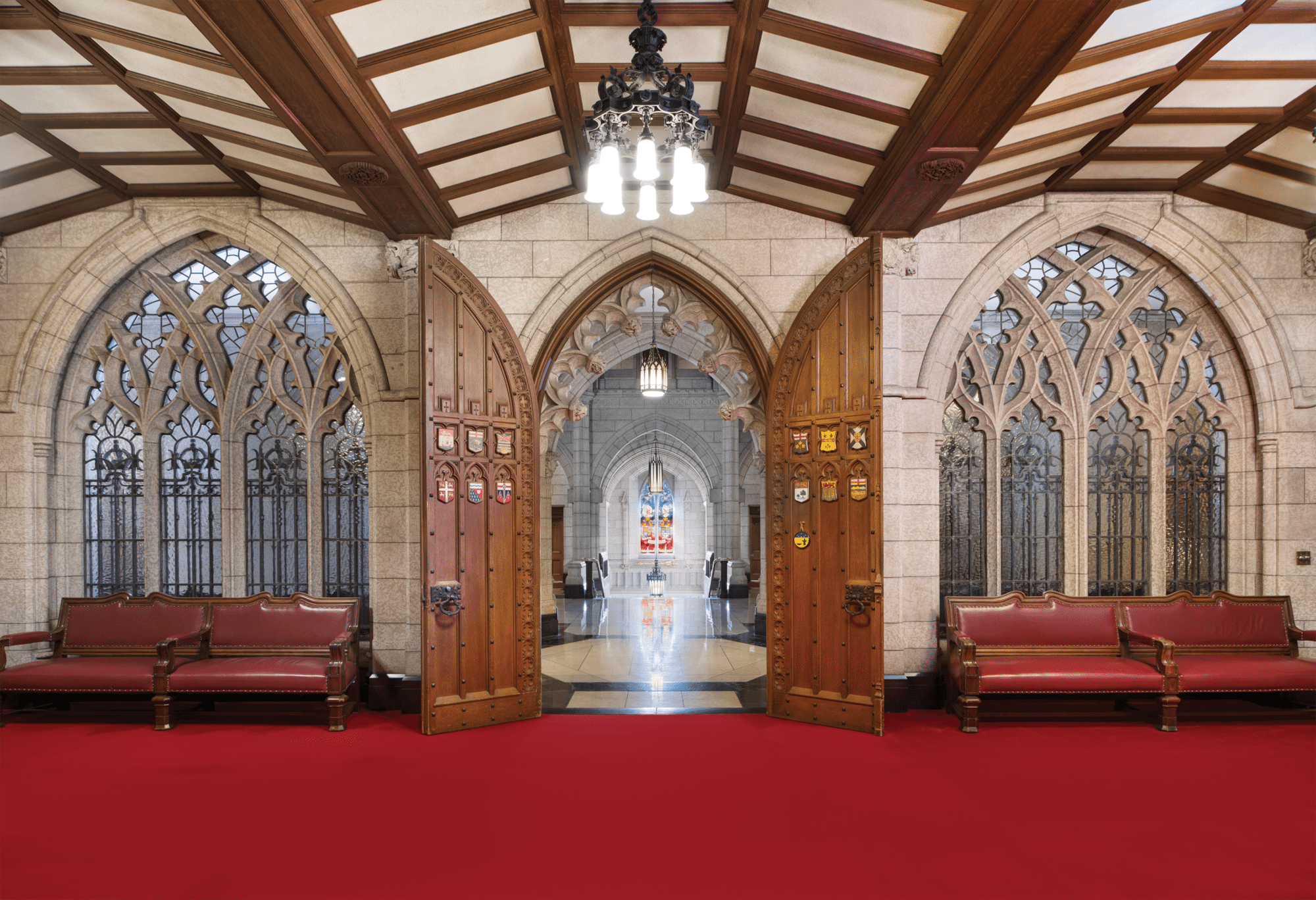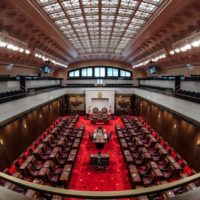News
Celebrating the 150th anniversary of the first sitting of the Senate
Senator Peter Harder’s statement on the Senate’s sesquicentennial.
Canada’s sesquicentennial is an important landmark that allows us to look back and consider how well Parliament has, over 150 years, abided by the principles of peace, order and good government—the principles at the foundation of this Confederation.
Many may say very well. The panoramic view of Canada shows a country with strong democratic roots peacefully growing stronger.
But if one looks more closely, one can see that democracy has always been a work in progress.

Photograph: copyright Senate of Canada.
Consider our Founding Fathers. However well-meaning their intentions, they were, as their name suggests, an exclusive group. But they did create a framework for a nation where change could take place.
And in the last 150 years, we can see many changes that have made Canada more inclusive and democratic.
But that transition was—and still is—not easy.
Every time we enter the Red Chamber, we pass by the busts of Cairine Wilson, the first woman appointed to the Senate, James Gladstone, the first status Indian to be appointed to the Senate, and Marianna Jodoin, the first francophone woman appointed to the Senate.
Their placement is not random. They remind us of the Senate’s role within Canada’s Parliament to fight for fairness, inclusion and representation.
In 1867, minority representation referred primarily to sparsely populated regions. Over the years, we now understand minority representation to refer to regions, but also people excluded for their gender, language, religion, background, or sexual orientation.
Canada’s democracy has been strengthened by the independent nature of the Senate that, with a strong voice, calls the attention of the elected house—and Canadians—to issues, or consequences of legislation, that sober second thought has brought to light.
The nature of the Senate also means that we can strengthen democracy by complementing the work of the other place by taking a longer view, unhindered by shorter-term, electoral priorities.
Senators, over my career, I have often been inspired by the words of Karl Reinhold Niebhur who wrote, “Man’s capacity for justice makes democracy possible, but man’s inclination to injustice makes democracy necessary.”
On this very special day, let us celebrate the capacity of Canadians for justice. And let us be proud as Parliamentarians of a democracy that evolves in the service of Canadians and in the service of justice.




















































